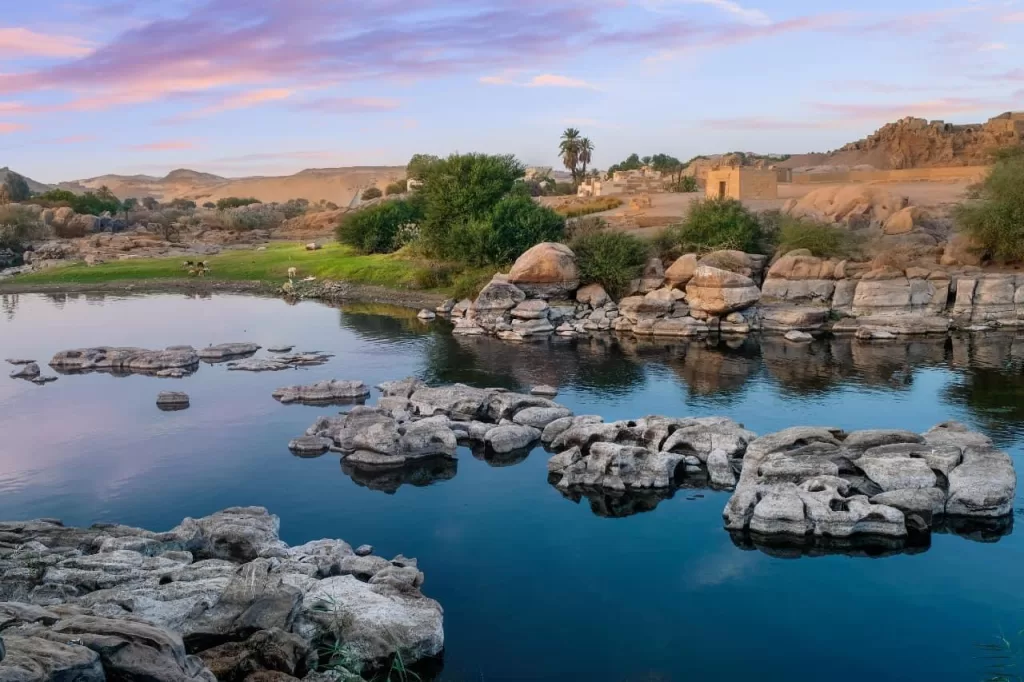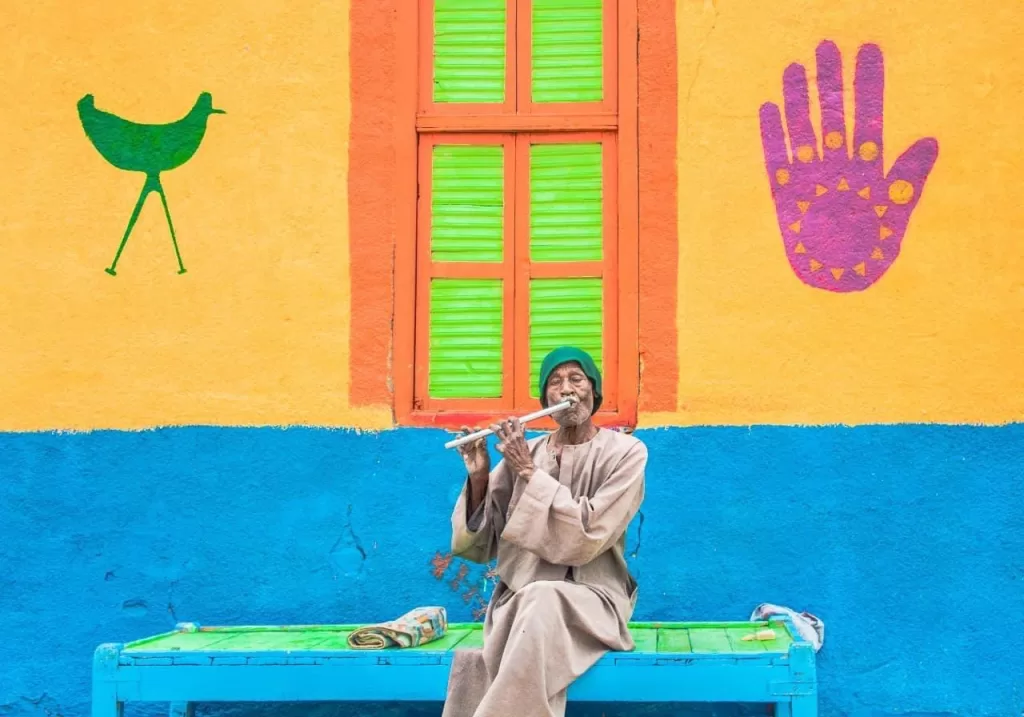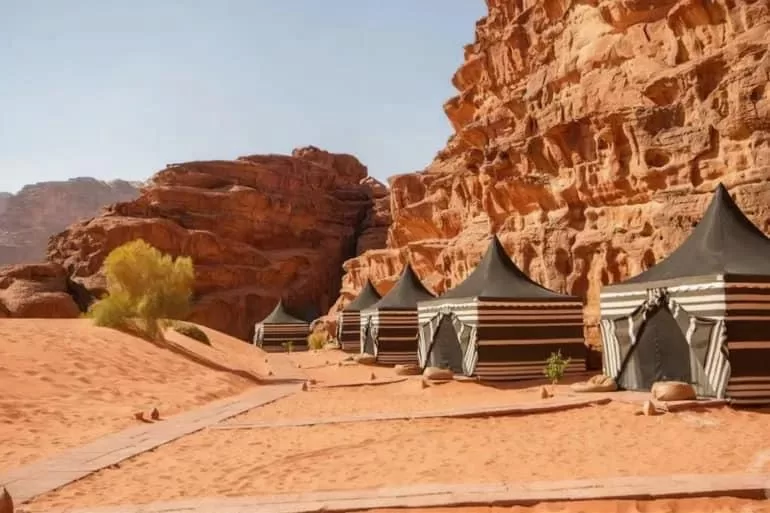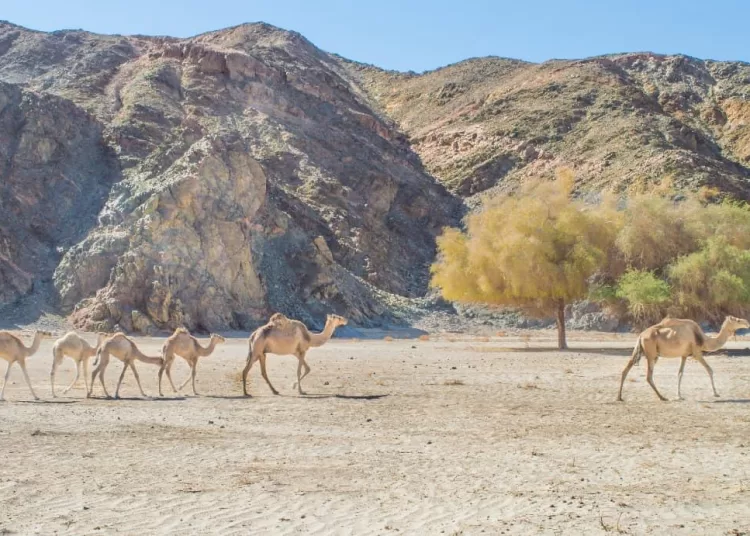Nestled within the tapestry of ancient Egypt, two villages have risen to international acclaim.
Gharb Suhail in Aswan and Abu Ghosoun on the Red Sea coast have been recently celebrated as Best Rural Tourism Villages for 2024 by the United Nations World Tourism Organisation (UNWTO).
This recognition reverberates like a harmonious echo across Egypt, affirming a dedicated pursuit of sustainability and cultural heritage preservation.
Amidst the historic allure of Cartagena de Indias, Colombia, the 122nd session of the UNWTO Executive Council bore witness to Egypt’s momentous victory.
The awards spotlight communities’ collective efforts embracing sustainable tourism, where rich traditions meld seamlessly with modern aspirations.
Launched in 2021, the UNWTO’s Best Rural Tourism Villages initiative seeks out communities that break new ground in tourism innovation.
Surpassing fierce competition from 260 contenders, only 55 villages, including Gharb Suhail and Abu Ghosoun, earned their spots on this distinguished list.
Adel el-Gendy, director-general of strategic management at Egypt’s Ministry of Tourism and Antiquities, received the honours on behalf of the Ministry, showcasing the nation’s relentless support for rural tourism through robust infrastructure and community-driven projects.
El-Gendy explained how the ministry swiftly identified and supported villages like Gharb Suhail and Abu Ghosoun, illustrating local culture and sustainable growth.
“This initiative contributes to an integrated tourism strategy that not only promotes Egypt’s grand monuments, but also celebrates its living, breathing cultural landscapes,” he said in his speech at the ceremony.
The heart of Gharb Suhail beats by the Nile, offering a window into the captivating world of Nubian history.


This vibrant locale, replete with brightly painted homes and bustling marketplaces, invites visitors to experience a community deeply rooted in ancient traditions.
Visitors to Gharb Suhail are treated to a homely atmosphere filled with storied aromas of traditional foods and a wealth of artisanal crafts — a perfect blend for those looking to reconnect with history.
Abu Ghosoun stands as a serene retreat along the Red Sea, south of Marsa Alam.
Known for its tranquillity and vibrant marine life, the village attracts those yearning for authentic experiences and peaceful escapes.
The adjacent Wadi El-Gemal National Park offers an oasis of biodiversity on both land and sea, where ecotourism flourishes beneath the watchful eyes of soaring eagles and meandering dolphins.

Minister of Tourism and Antiquities, Sherif Fathy, extolled these accolades, describing them as testaments to the enduring spirit of Egypt’s rural communities.
“These awards not only reflect the nation’s burgeoning reputation as a tapestry of diverse tourism options, but also emphasise the collaborative efforts of small communities that make it all possible,” he said.
With the addition of Gharb Suhail and Abu Ghosoun to the list this year, Egypt proudly marks four villages honoured by the UNWTO, joining Dahshur in Giza and Siwa in Matrouh, recognised in 2023.
Additionally, Fuwwah in Kafr El-Sheikh and St. Catherine in South Sinai had previously received acknowledgement through the UNWTO upgrade initiative in 2021 and 2023, respectively.
The UNWTO has set nine criteria for selecting these villages, which are: availability of cultural and natural resources, the ability of the tourism sector to preserve and enhance those resources, providing economic sustainability and integration, governance of tourism activities in villages to achieve the state’s value chains, infrastructure, tourism and communication services, tourism safety, and health and safety standards.

Mohamed Othman, chairman of the Committee on Cultural Tourism Marketing, highlighted the transformative power of rural tourism.
“Rural tourism reflects the richness of the Egyptian personality,” he said.
“As global travellers grow increasingly curious about cultural exchanges, Egyptian villages stand ready to showcase their rich heritage, from sweeping landscapes to warm hospitality” he added.
Othman noted that embracing rural tourism is a robust response to traditional tourism’s limitations.
“As Egypt boldly targets 30 million tourists, rural tourism forms the backbone of this thriving industry, enticing adventurers to explore beyond the ancient pyramids and grand statues to hear the stories of everyday Egyptian life,” he added.
Highlighting Gharb Suhail’s distinct charm, Othman referred to the vibrant Nubian character that makes every visit a journey through time.
He explained that the village is alive with seasoned artisans and devoted families fostering cultural continuity.
“This confluence of tradition and tourism crafts a unique experience that delights and informs guests,” he said.
Moreover, the bustling activity within these villages represents more than just economic progress.
It symbolises a sustainable path where every resident, from grandparent to child, contributes to an ecosystem of cultural exchange and intellectual growth.
Such experiences linger in visitors’ memories long after they depart, underscoring the allure of Egypt’s enduring appeal.
With their accolades and aspirations, these villages exemplify Egypt’s commitment to a future interwoven with the past, beckoning the world to discover and cherish its hidden gems.






Discussion about this post